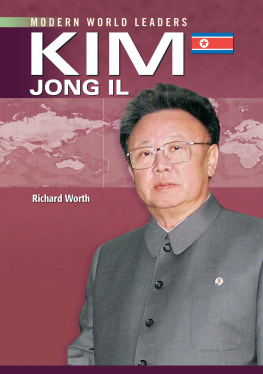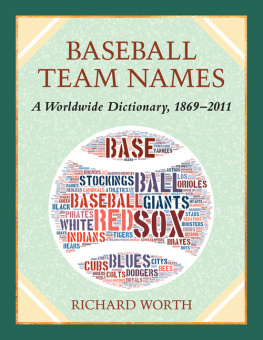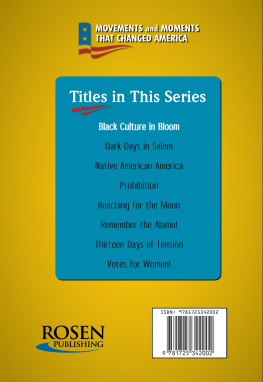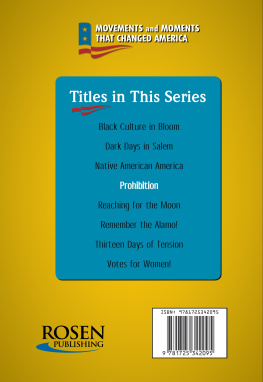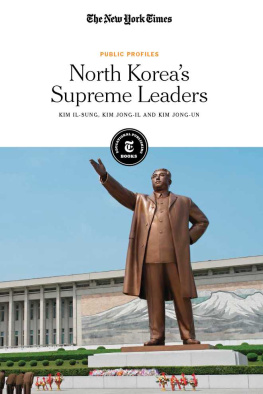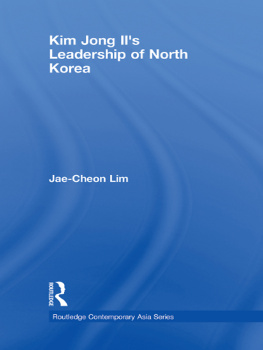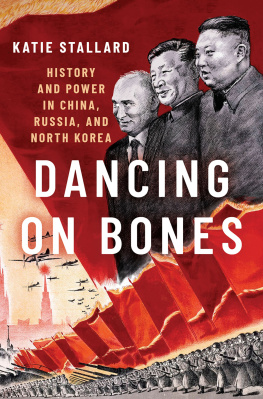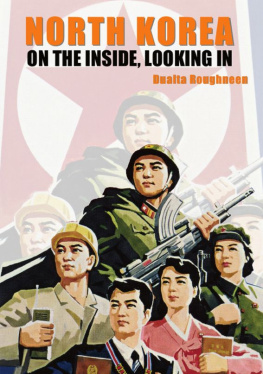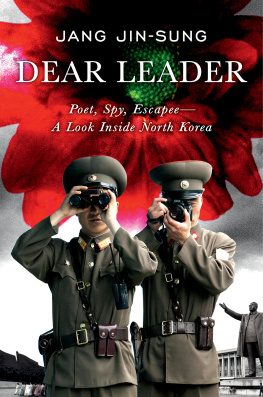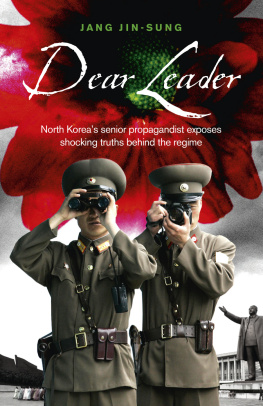Richard Worth - Kim Jong Il
Here you can read online Richard Worth - Kim Jong Il full text of the book (entire story) in english for free. Download pdf and epub, get meaning, cover and reviews about this ebook. year: 2013, publisher: Infobase Publishing, genre: History. Description of the work, (preface) as well as reviews are available. Best literature library LitArk.com created for fans of good reading and offers a wide selection of genres:
Romance novel
Science fiction
Adventure
Detective
Science
History
Home and family
Prose
Art
Politics
Computer
Non-fiction
Religion
Business
Children
Humor
Choose a favorite category and find really read worthwhile books. Enjoy immersion in the world of imagination, feel the emotions of the characters or learn something new for yourself, make an fascinating discovery.
- Book:Kim Jong Il
- Author:
- Publisher:Infobase Publishing
- Genre:
- Year:2013
- Rating:3 / 5
- Favourites:Add to favourites
- Your mark:
- 60
- 1
- 2
- 3
- 4
- 5
Kim Jong Il: summary, description and annotation
We offer to read an annotation, description, summary or preface (depends on what the author of the book "Kim Jong Il" wrote himself). If you haven't found the necessary information about the book — write in the comments, we will try to find it.
North Korea has been a communist dictatorship since shortly after the end of World War II. Ruled by the iron hand of Kim Il Sung, the nation struggled economically compared
Kim Jong Il — read online for free the complete book (whole text) full work
Below is the text of the book, divided by pages. System saving the place of the last page read, allows you to conveniently read the book "Kim Jong Il" online for free, without having to search again every time where you left off. Put a bookmark, and you can go to the page where you finished reading at any time.
Font size:
Interval:
Bookmark:
Copyright 2013 by Infobase Learning
All rights reserved. No part of this publication may be reproduced or utilized in any form or by any means, electronic or mechanical, including photocopying, recording, or by any information storage or retrieval systems, without permission in writing from the publisher. For more information, contact:
Chelsea House
An imprint of Infobase Learning
132 West 31st Street
New York NY 10001
ISBN 978-1-4381-4759-8
You can find Chelsea House on the World Wide Web
at http://www.infobaselearning.com
On October 9, 2006, an underground explosion occurred in North Korea, a nation about the size of Mississippi, located along the east coast of Asia. The blast was monitored by the United States Air Force Technical Applications Center (AFTAC). This arm of the U.S. Department of Defense monitors nuclear explosions. AFTAC operates ground stations and aircraft that measure nuclear blasts and collect any material that reaches the atmosphere. The explosion, about the size of a small earthquake, had occurred at Yongbyon. This nuclear facility, located about 50 miles (80.5 kilometers) north of the capital, Pyongyang, is operated by North Korea's dictator, Kim Jong Il.
After carefully studying the explosion, scientists concluded that North Korea had, indeed, detonated its first nuclear blast. This explosion occurred several months after tests of intercontinental ballistic missiles by the North Korean government.
These missiles were fired off the coast of North Korea into the Sea of Japan. Referring to the nuclear tests, Graham Allison, a former U.S. Defense Department official, said, "I think this is bad news for the country, bad news for the region, bad news for the world."
Allison feared that other nations in Asia might want to develop nuclear weapons to protect themselves against a possible attack by the Communist government of North Korea. Currently only nine nations in the world have nuclear weapons capability. These include the United States, Russia, India, Pakistan, Israel, France, England, China, and now North Korea. If more nations obtain these weapons, the risk increases that they might be used in a nuclear war.
In addition, some experts feared that North Korea might be tempted to sell nuclear weapons to terrorist groups like al Qaeda. In the past, Kim Jong Il sold weapons to nations in the Middle East, including harsh dictatorships like Syria and Iran. As author Derek D. Smith wrote, "If you can't deter the terrorist organizations, you'd better be sure to deter whoever is supplying them." He was referring to North Korea.
After learning of the North Korean nuclear test, U.S. president George W. Bush reacted strongly. "The transfer of nuclear weapons or material by North Korea to states or non-state entities would be considered a grave threat to the United States," he said, "and we would hold North Korea fully accountable of the consequences of such action."
Experts disagree on why Kim Jong Il decided to conduct North Korea's first nuclear test. Some suggest that he was responding to a speech delivered in 2002 by President Bush. At that time, Bush said North Korea was part of the "axis of evil." These nations-which also included Iran and Iraq-were believed by President Bush to pose a grave threat to world peace. According to the Economist, Kim Jong Il believed that "if you do not want to be invaded by America, as was Iraq, then it is best to get your weapons of mass destruction up and running. Once your own security is assured, you can bargain from a position of strength."
President Bush branded North Korea part of the "axis of evil" because U.S. intelligence indicated that Kim was accelerating his nuclear weapons program. At the same time, the United States cut off oil shipments and other aid to North Korea. These shipments had started in the 1990s as part of an earlier agreement by the United States when North Korea agreed to stop its nuclear program. At that time, North Korea's government also allowed inspectors to enter the country to make sure that the agreement was not violated. When President Bush abruptly stopped the oil shipments in 2002, Kim Jong Il reacted immediately. He refused to allow international inspectors to return to his country to find out whether he was developing nuclear weapons.
While Kim's decision to resume the program may have been in response to President Bush's statements, some observers believe that far more was involved. Chinese professor Zhang Liangui, an expert in international relations, pointed out that North Korea had long been engaged in an effort to develop nuclear weapons. This program began in the 1950s, soon after North Korea became a Communist nation. Its purpose had been to strengthen the North Korean regime and protect it from possible invasion by South Korea or the United States. American forces invaded North Korea following its invasion of South Korea in 1949. This war devastated North Korea and left a lasting impression on its leaders. The resumption of the nuclear testing program in 2002 was simply a continuation of a long-standing policy of self-defense.
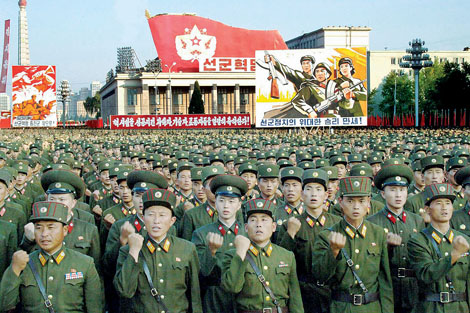
North Korean soldiers attend a mass rally celebrating the success of the country's first nuclear weapons test. A small country about the size of Mississippi, North Korea is one of the most militarized nations in the world. Its development and production of nuclear weapons concerns the international community because of fears that North Korean leader Kim Jong Il may be tempted to sell the arsenal to terrorist organizations.
Source: AFP/Getty Images.
Ever since North Korea banned the nuclear inspectors in 2002, several nations have tried to persuade Kim to resume talks and end the weapons program. These nations include China, Russia, Japan, South Korea, and the United States. Their efforts took on a new sense of urgency following the nuclear test in October 2006. China, Russia, Japan, and South Korea are all nations located in the same region as North Korea, so a nuclear-armed government led by Kim Jong Il poses a grave threat to all of them.
During February 2007, delegates from these countries met in Beijing, the capital of China. Joining the discussions were representatives of the United States and North Korea. Kim Jong Il had indicated after the nuclear test that he was prepared to discuss an end to the North Korean program in return for economic aid. This led some experts to believe that the purpose of the test all along had been to force the rest of the world to take notice of North Korea and to give Kim what he wanted. North Korea is a very poor nation that has suffered from famine and drought in the past. As a result, it depends heavily on aid from abroad. Much of this aid has come from China and South Korea as well as the United States.
Following the nuclear blast, the United Nations voted to place economic penalties on North Korea. It required member nations to prevent North Korea from exporting weapons to any other countries. In addition, the UN stated that its members should not export luxury items-such as fine wines-to North Korea. Kim Jong Il reportedly enjoys these wines at the many parties he hosts inside his palaces in North Korea.
After several days of the six-party talks in Beijing, North Korea agreed to "shut down and seal for the purpose of eventual abandonment" its nuclear operations at Yongbyon. In return, the other nations agreed that the equivalent of $25 million in North Korean funds, held by a Chinese bank, could be released. These funds had reportedly been earned from illegal activities carried on by Kim Jong Il's government. In addition, North Korea would receive 50,000 tons of fuel oil. More oil and further economic aid would be delivered as inspectors examined the nuclear facilities to make sure that they had been completely "disabled."
Font size:
Interval:
Bookmark:
Similar books «Kim Jong Il»
Look at similar books to Kim Jong Il. We have selected literature similar in name and meaning in the hope of providing readers with more options to find new, interesting, not yet read works.
Discussion, reviews of the book Kim Jong Il and just readers' own opinions. Leave your comments, write what you think about the work, its meaning or the main characters. Specify what exactly you liked and what you didn't like, and why you think so.

